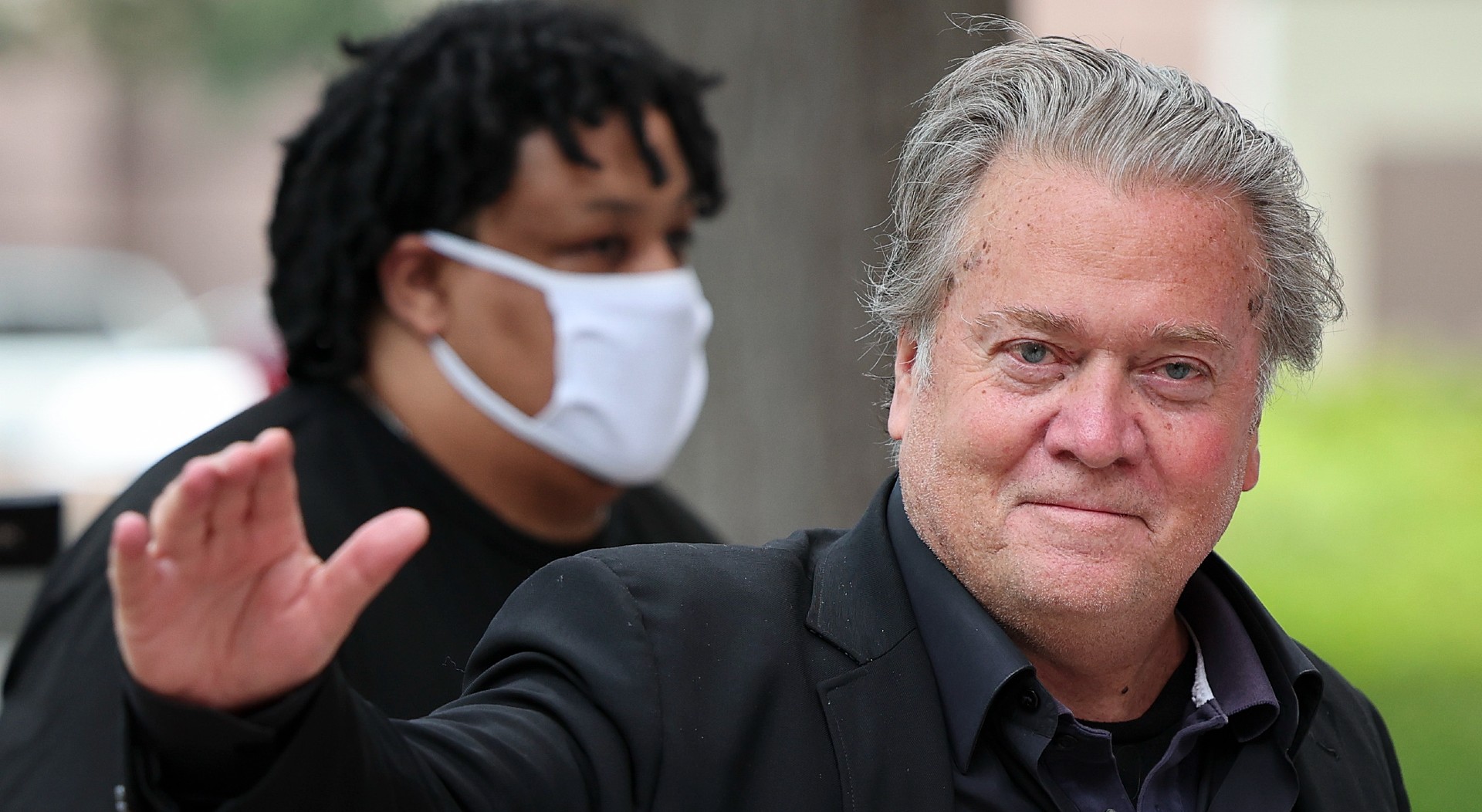OPINION: This article may contain commentary which reflects the author's opinion.
The federal judge presiding over former White House chief strategist Steve Bannon’s criminal contempt trial denied his request on Tuesday to delay the trial for one month.
“The motion to continue is denied,” U.S. District Judge Carl Nichols stated following a short recess after the motion was formally made.
Evan Corcoran, Bannon’s attorney, said there was a “seismic shift” in the parties’ understanding surrounding the judge’s past rulings.
“Tuesday morning, the former White House aide’s attorney Evan Corcoran asked Judge Carl Nichols for a one-month continuance following an argument between the parties over admitting into evidence letters between Bannon and the House Jan. 6 committee,” Fox News reported.
“Judge Nichols ultimately said that the letters could be admitted, although there were discussions about whether to redact portions of them to limit the scope of what jurors could see. The judge then called for a two-hour break, saying that at 1 p.m. the parties will reconvene on the record to finalize a decision on admitting the letters. Nichols also said he may agree to delay the trial by one day,” the report added.
“Bannon’s trial comes months after he was charged with two counts of contempt of Congress for refusing to comply with the committee’s requests. The one-time adviser to former President Donald Trump had cited executive privilege in refusing to cooperate. Earlier this month, Trump declared he was waiving executive privilege regarding Bannon, clearing the way for him to testify before the committee,” the report continued.
From colleague Jake Gibson. Judge denies request by Bannon team to delay contempt of Congress trial for a month.
— Chad Pergram (@ChadPergram) July 19, 2022
Judge rejects Bannon defense team motion for a one-month trial delay. But the argument over that issue could delay the trial for one day. via @hsu_spencer @DevlinBarrett @TomJackmanWP https://t.co/ghGdfqJMVD
— Debbi Wilgoren (@DebbiWilgoren) July 19, 2022
Last Thursday, Judge Nichols denied Bannon’s attempt to delay his trial on criminal contempt of Congress charges stemming from the Democrat-led investigation into the incident at the U.S. Capitol 18 months ago.
Nichols ruled jury selection would begin on Monday and rejected a motion from Bannon to delay it until at least mid-October.
“We’re still going to be at trial on Monday,” Nichols said last week.
The judge also denied a request from his attorneys to delay the trial after they said that they were concerned about a biased jury because of the media coverage of the January 6 committee hearings.
“While I am certainly cognizant of Mr. Bannon’s concerns regarding publicity, in my view the correct mechanism at this time for addressing that concern is through the [jury selection] process,” the judge said.
“What is the point of going to trial here if there are no defenses?” Bannon’s attorney David Schoen said.
“Agreed,” the judge said.
Bannon has argued that the former president’s claim of executive privilege is what stopped him from testifying, and on Sunday he said he would be willing to talk to the committee, though he would prefer a public hearing after he received a letter from the former president’s team informing him that he would waive executive privilege.
Federal prosecutors argued that the former president had “never invoked executive privilege over any particular information or materials.”
“The Defendant’s timing suggests that the only thing that has really changed since he refused to comply with the subpoena in October 2021 is that he is finally about to face the consequences of his decision to default,” U.S. Attorney Amanda Vaughn said. “Instead, his continued failure to comply with the subpoena’s document demand while claiming he now will testify suggests his actions are little more than an attempt to change the optics of his contempt on the eve of trial, not an actual effort at compliance.”
In June, the judge refused to throw out the charges against Bannon for contempt of Congress.
Nichols rejected Bannon’s arguments that the House select committee’s subpoenas were illegal and that he was protected by the secrecy of the presidency because he had been in contact with former President Donald Trump at the end of his administration.
“The court cannot conclude as a matter of law that the committee was improperly constituted, nor that Bannon is correct to argue that the subpoena wasn’t properly cut and the indictment is invalid,” Nichols said.
